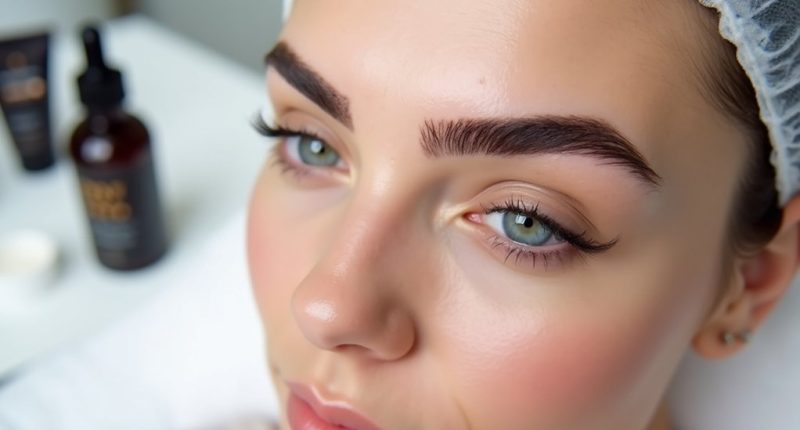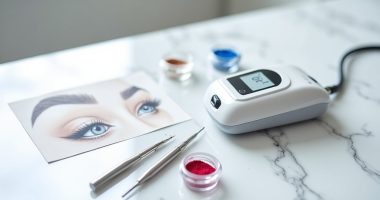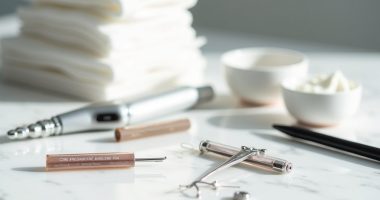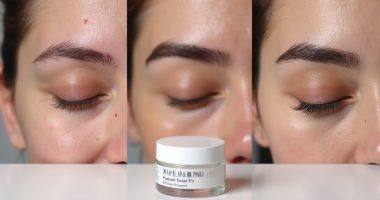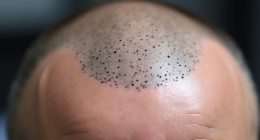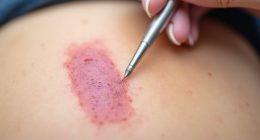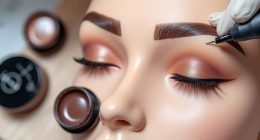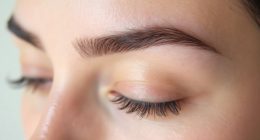Permanent makeup isn't actually permanent—surprise! These trendy tattoos fade over time, lasting 1-5 years depending on treatment type. Proper technique matters; pigments implanted too shallow disappear quickly. Quality pigments make a difference too. Lifestyle choices impact longevity—sun exposure, chlorinated pools, and skincare products containing acids can speed up fading. Oily skin types need more frequent touch-ups. Proper aftercare isn't optional, it's essential for maximizing that investment you just made in your face.
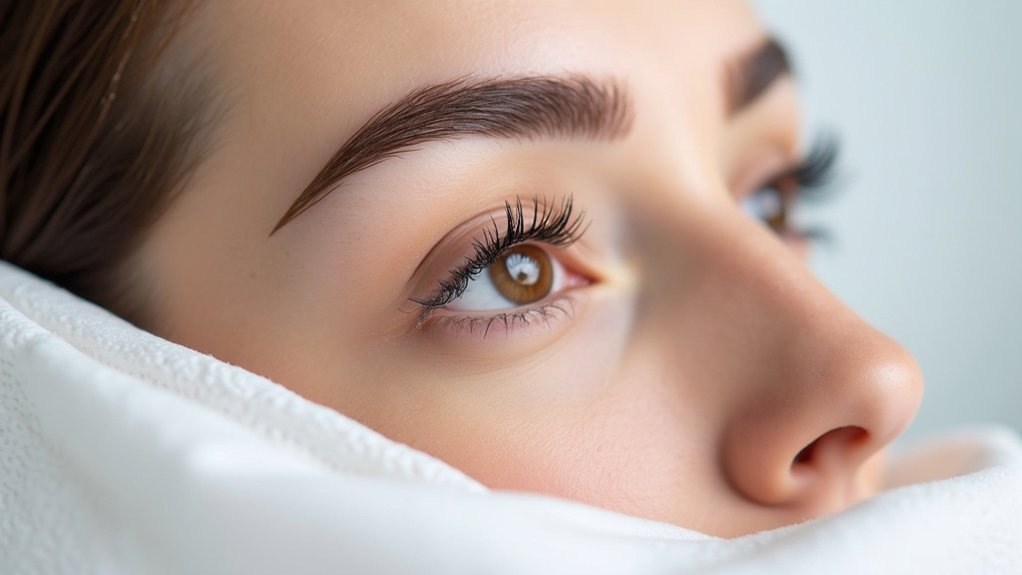
While permanent makeup promises to simplify beauty routines, the term "permanent" is somewhat misleading. In reality, permanent makeup (PMU) treatments gradually fade over time, requiring touch-ups to maintain their appearance. The longevity varies considerably depending on several factors that clients should understand before committing to the procedure.
The technique impact cannot be overstated. A skilled technician knows exactly how deep to implant the pigment—too shallow and it fades quickly, too deep and it can blur. It's not rocket science, but it might as well be. Pigment quality matters too. The difference between high-end and bargain pigments? About two years of longevity. Inorganic pigments containing iron oxides and titanium dioxide simply outlast their organic counterparts. They're stubborn that way. EU REACH-compliant pigments guarantee you're not putting questionable chemicals into your skin. Because who needs that drama?
Different PMU treatments have varying lifespans. Eyebrows and microblading typically last 1-3 years, while eyeliner and lip color can remain visible for 2-5 years. Powder brows usually stay put for 2-3 years. Not forever. Nothing is. Despite being called permanent, these procedures are actually semi-permanent tattoos that gradually lighten over time.
Client lifestyle plays a considerable role in how quickly PMU fades. Sun worshippers, take note. UV exposure is practically kryptonite to your beautiful brows. Swimmers face similar challenges—chlorine breaks down pigments faster than you can say "Olympic pool." Skincare fanatics using retinols and acids? They're fundamentally erasing their PMU with every application. Your skin type significantly impacts longevity, with oily skin typically requiring more frequent touch-ups than dry or normal skin. Smokers also experience faster fading. Another reason to quit.
Aftercare isn't optional. It's crucial. The first week is critical. No water exposure. Apply ointments religiously. Don't pick or scratch—seriously, don't. Follow all instructions diligently. The healing process determines how well pigment sets. Using healing balms and ointments as directed by your technician will significantly reduce irritation and promote optimal pigment retention during this critical period.
Want your PMU to last? Use sunscreen religiously. Schedule touch-ups every 12-18 months. Avoid harsh skincare treatments in treated areas. Simple stuff, really.
Sometimes, PMU requires removal before new application. Over-saturation happens with multiple touch-ups. The skin can only hold so much pigment. Removal options include laser, saline, and glycolic acid methods. None are particularly pleasant.
But the natural fading process does offer a silver lining—the opportunity to update styles as trends evolve. Because no one wants to be stuck with the brow trends of 2010 forever.
Frequently Asked Questions
Can Certain Medications Affect Pmu's Longevity?
Absolutely. Various medication types greatly impact PMU longevity.
Blood thinners cause excessive bleeding, pushing pigment out. Accutane? Terrible for skin healing – wait a year after stopping it.
Thyroid meds speed up fading. Even common stuff like aspirin makes a difference.
Some medications require medical clearance before getting permanent makeup.
And those anti-aging products you love? They'll fade your PMU faster than you can say "touch-up appointment."
Just the reality of chemistry meeting artistry.
Do Permanent Makeup Touch-Ups Hurt More Than Initial Applications?
Touch-ups typically hurt less than initial applications, not more. The pain comparison is pretty clear on this one. Most clients find the touch-up sensation milder since the skin has already experienced the procedure before. Existing pigment creates a buffer.
That said, everyone's different! Some factors can make touch-ups more uncomfortable—like extensive color correction or too much time between appointments. Numbing creams help either way. Your artist's skill matters too. Experience = less ouch.
Does PMU Look Different on Various Skin Tones?
Yes, PMU looks dramatically different across skin tones. Darker skin has faster pigment breakdown, while lighter complexions show color changes more visibly.
Skin tone impact extends beyond just appearance – it affects color retention too. Dark skin? Deep espresso pigments work best. Light skin? Soft taupes and browns.
It's not rocket science, just biology. Artists use the Fitzpatrick Scale to classify skin, then customize accordingly. One size definitely doesn't fit all in permanent makeup.
Will PMU Fade Evenly or in Patches?
PMU fading patterns vary greatly.
Truth is, it depends. Skin type plays a huge role – oily skin? Prepare for faster, potentially patchier fading.
Application technique matters too. Perfect application doesn't guarantee perfect fading! Eyebrow tails typically fade faster than centers.
Lips? Often patchy due to constant movement and moisture. Eyeliner tends to fade more evenly (thank goodness for small mercies).
Sun exposure? Major fading accelerator. Even the best PMU will fade – just hopefully in a dignified manner.
Can I Donate Blood After Getting Permanent Makeup?
Blood donation guidelines vary after getting PMU. The waiting period? It depends.
Licensed facilities? No wait required. Unregulated states? Three months, folks. That's just how it is.
PMU aftercare tips won't affect eligibility, but proper healing matters.
Dermatologist-applied PMU? Donate immediately. Microbladed eyebrows? Fine if done in regulated places.
Bottom line: where you got it matters more than what you got. Funny how a little ink can complicate something as simple as giving blood.
